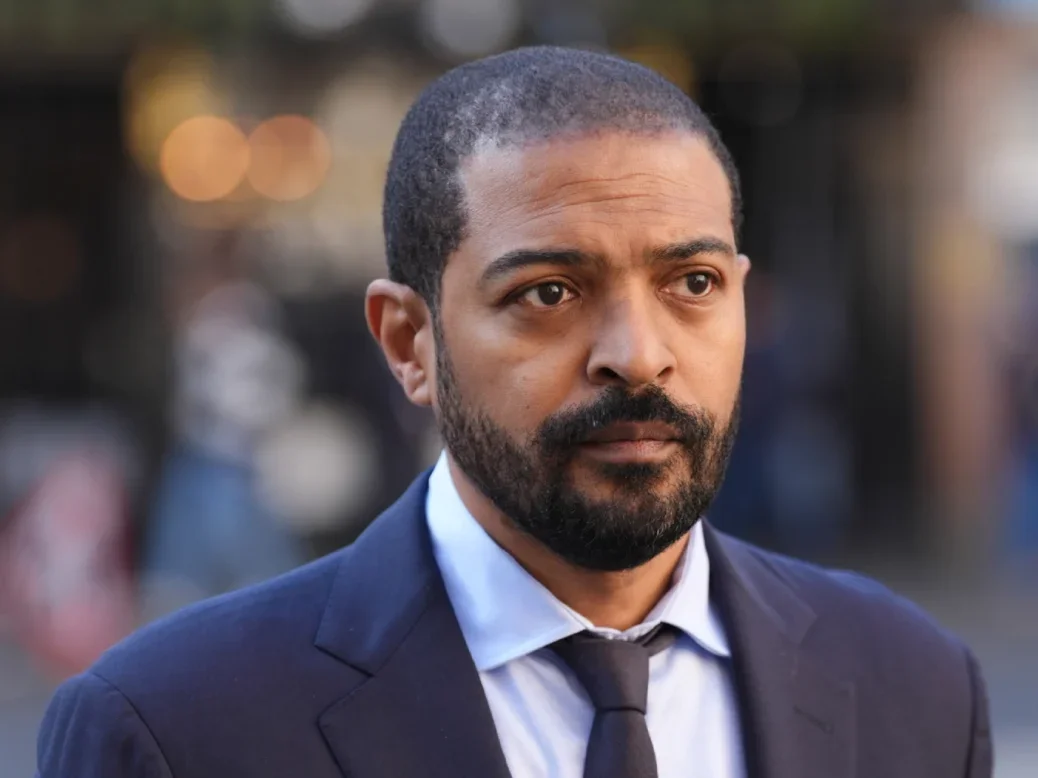
Allegations of sexual misconduct against Noel Clarke published in the Guardian have left the actor a “casualty” of a media “purge” following the emergence of the MeToo movement, the High Court has heard.
But a lawyer for the newspaper said its investigation into the actor was “careful and thorough” with information “from a wide range of sources with direct evidence of misconduct”.
Clarke, 49, has claimed there is a conspiracy of people with financial and personal grudges against him who engineered his downfall because they could not bear to see him receive a Bafta award.
He is suing the Guardian’s publisher, Guardian News and Media (GNM) over seven articles and a podcast, including an article from April 2021 that said 20 women who knew Clarke professionally had come forward with allegations of sexual misconduct.
Clarke denies the allegations, while GNM is defending its reporting as being both true and in the public interest.
Philip Williams, representing Clarke, told a High Court hearing on Friday that his client was made a “scapegoat” and was an “easy target” because he was at the height of his success when the media industry “zealously sought to correct itself” following the MeToo movement.
Williams said witnesses for the Guardian were taking “revenge” on Clarke and “weaponising” their complaints against him.
He said in written submissions: “A handful of people were plotting and carrying out their scheme from 2019 to bring about Mr Clarke’s downfall, based on vitriolic hatred, professional jealousy, classist snobbery and insidious racialised bias.”
The barrister also criticised the Guardian’s investigation, saying the newspaper “manifestly failed to do its job properly”.
He said the reporters failed to investigate relevant leads, did not verify some assertions, allowed “contamination” of their sources’ information by asking leading questions and deleted chat messages relevant to the libel trial.
“The defendant was aware of the sheer malice of many of its intermediaries and sources, with an apparent axe to grind, and such intermediaries and sources’ lies and discrepancies should have been treated with much caution, such that publication should have been in doubt,” he said.
Williams asked the court to find the claim successful, saying the Guardian’s reporting has caused serious harm to Clarke’s career, with “continuing hostile reactions online and in public discourse”.
Guardian witnesses ‘careful, considered and truthful’
Gavin Millar KC, for GNM, said there is “not a shred of evidence” to support Clarke’s claim of a conspiracy, describing it as “nonsensical and rather desperate speculation”.
He said Clarke has a “very clear motive to lie” because he “stands to lose a great deal”.
The barrister described the Guardian’s witnesses as “careful, considered and truthful” and that many of those for Clarke did not have direct knowledge of the allegations and therefore their evidence should not be given much weight.
In written submissions, Millar said Clarke “used his power to prey on and harass female colleagues” over a period of 15 years.
He also bullied people, engaged in sexually inappropriate behaviour and comments, gave unwanted kissing, touching or groping, took and shared explicit pictures and videos without consent and engaged in professional misconduct, Millar told the court.
The barrister added: “The substantial truth of each of those elements is easily made out by the evidence heard at this trial.
“Indeed, it would be unnecessary for the court to accept even the majority of that evidence for the truth defence to be made out.”
Millar asked the court to dismiss Clarke’s claim and find that the reporting was both true and in the public interest.
He said: “This was a careful and thorough investigation conducted conscientiously by Guardian journalists who were aware of the potential pitfalls.
“They received information from a wide range of sources with direct evidence of misconduct and in each case carefully considered and tested the information they were given, electing to publish only such information as they believed was credible.”
The trial, before Mrs Justice Steyn, concluded on Friday with a written judgment expected at a later date.
Email pged@pressgazette.co.uk to point out mistakes, provide story tips or send in a letter for publication on our "Letters Page" blog
